Masters Students
Post-Doctoral Fellow
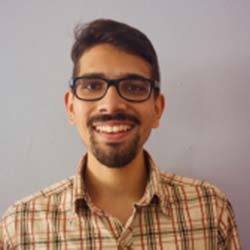
I recently completed my Bachelor of Arts with majors in Political Science, History and French Language and Literature. I have always held a deep interest in history, current affairs, politics and international relations and it is a great privilege to be a part of the History Access Programme for 2019.
History Access speaks to the reevaluation of normative ideas around knowledge production, particularly with respect to mappings of historical knowledge and concepts. I am excited to work and learn in a holistic space as part of a community seeking new modes of expression and critical solutions.
My research interests lie in the intersection between language, history, politics and identity (-making). Language is an expression of life and a way of communicating with others, and thus multi-lingualism is not simply the languages we speak but the ways in which human beings interact with the world. I intend to focus my Honours work on histories of multi-linguality in an African context, and trace how the intersections of language shape identity over time. I would love to be engaged in work that seeks to foster a greater sense of unity, diversity and cooperation through understandings of language. Moreover, I believe a focus on complexities of language is especially important in an academic context.
I have been involved in various youth initiatives and UCT societies and for the past 2 years have coordinated a mentorship and Model UN program with high school students in the Western Cape as part of the United Nations Association of South Africa- UCT Chapter. In 2019, I will serve as the Chairperson of UNASA-UCT.
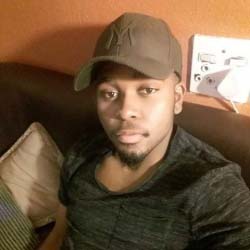
I’m a sports enthusiast and an eclectic person. In the sense that; my views and aspirations are drawn from multifaceted sources. I’m a UCT graduand and on the Dean’s Merit List. I majored in Sociology and History. I was a born and bred in one of the largest townships in South Africa – Khayelitsha, but recently moved to the Eastern Cape, Queenstown, Thornhill-Zola. Perhaps one can suggest that my eclecticism can be understood from these varied socio-cultural contexts.
My current research focusses on the influence of post-colonial theory on student movements in South Africa. It does this through tracing the genealogy of the decolonisation movement that emerged from ‘Fees Must Fall’ protests and how this movement has become a beacon of hope for many seeking radical change in education. Taking into account the important role students played in reconceptualising human rights and basic notions of social justice which were eroded by apartheid nuances, the paper takes the discussion further. It seeks to ask such as why the student movement adopted a race-based rationale to press its demands?
Is the decolonization debate merely a discussion existing among scholars and students? Does the decolonization thesis represent the causes of the South African majority- most of whom will never set foot inside a university? Noting that the May ’68 generation pursued causes that extended far beyond the confines of the academia, does the current student movement follow that pattern? These are the questions and reflections that will appear throughout my paper.
I’m very excited about the History Access Scholarship and I hope to learn a lot from it, so that I can become conceptually multilingual, technically competent and academically rigorous historian. It’s going to be AMAZING!
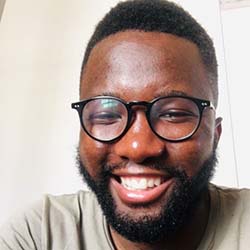
I am from Makhanda (former Grahamstown), in the Eastern Cape. I grew up under an encouraging mother who valued and believed in education. I am a cricket enthusiast who has a solid understanding of the game.
I have been an activist as a student at the University of the Western Cape where I completed my undergraduate studies- majoring in History and Sociolinguistics.
My research interests lie in South Africa’s rural history- a field less explored in South Africa’s historical studies. My Honours research focused on the precursors, continuities and legacies of the Homeland system in Peddie, and generally the former Ciskei. Covered in my work was issues of governance, citizenship, democracy and chieftaincy.
My Masters is primarily a thematically discussing on the genealogy (ies) of Indirect Rule. The study is tracing the evolvement of colonial techniques, methods and procedures in the segregation period leading up to apartheid (1927-1952) and how the politics within the Union government shaped state initiatives. In doing so, I wish to understand the evolvement of South Africa’s Native Policy beyond national policy and attempt to comprehend local initiatives from district and local council level which prompted policy change, sometimes unofficially. The southern Ciskei, for me, presents a different dynamic considering the surrounding Victorian towns. I remain curious of the encounter of Victorian culture and the African polity in this period.
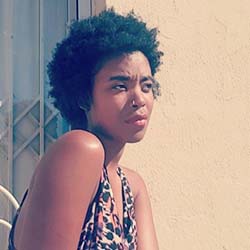
My name is Yonela Ndlwana. I am 23-years old and I have completed a Bachelor’s Degree majoring in English Literature, Sociology and History. My interests lie in interrogating the ways in which we have understood and recorded African History. I am also invested in the “recovering” of African History using modes, methods and languages that have long been ignored, suppressed or undermined. I hope to be part of the new wave of African Historians who can look beyond the existing frameworks and understandings of African History and would like to add to the current debates that exist in the discipline. If I don’t succeed in doing that I just hope to graduate with an Honours Degree in History.
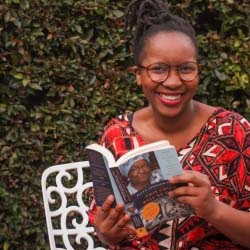
My name is Ayanda Nxusani and I am a 2nd year Masters student in History. My undergrad was in Politics, International Relations and Economic History. After I graduated in 2014 I studied Interfaith Dialogue at Hartford Seminary in the US. In 2016 I came back to UCT and did my Honours specialising in Justice and Transformation in the Politics Department where my researched look at how an understanding of intergenerational trauma can be useful in understanding South African born frees.
My Masters project is a build up to what I started during my Honours year, now I am looking at the intergenerational ways in which xhosa families speak about traumatic memories and their experiences under apartheid and how these when passed down affects the identity formation of born frees. I am really interested in some of the ‘immaterial’ legacies that are inherited by young people born after conflict and how these shape their perceptions of themselves, the other and the communities around them and how all these intersect in isiXhosa.
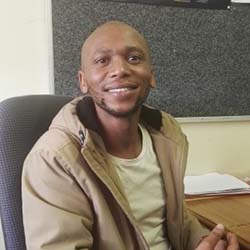
Luvuyo is a master’s candidate in the University of Cape Town and a UCT History Access scholarship recipient. Born and raised in the historic town of Alexandria, “Emnyameni” in the township of Kwa Nonqubela, Luvuyo Leon Kiti is the son of a hardworking and determined domestic worker. The town is at the heart of the historic Xhosa cattle killings which were “prophesised” by Nongqawuse in the years of 1856-7. Through the motivation and dedication of his mother, Luvuyo started his BA in Sociology and isiXhosa African language studies in Rhodes University then later, after a series of trials and tribulations, completed his studies with Nelson Mandela University (NMU). Recently, Luvuyo completed his BA Honours in Sociology with NMU.
Luvuyo’s proposed master’s area of study lies in the underlying literature and poems which are aimed at the prophetic voice towards African literature and theories. Having majored in the isiXhosa African language in undergrad, Luvuyo’s academic passion lies within the Xhosa literature. Building from this interest comes the need to provide scholarly attention to African literature. Of note in Luvuyo’s Xhosa Literature interests’ is Nontsizi Mgqwetho.
It is thus Luvuyo’s academic goal to bring to light the long forgotten Xhosa Scholarly writings in the form of poetry and its role in the prophecies of what constitutes the theoretical framework. This comes from Mgqwetho’s prescription for Africans to interrogate the truth and politics of Knowledge for themselves rather than unquestionably accepting what is handed down to them by a Eurocentric theoretical framework.
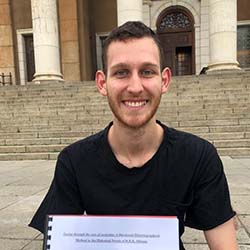
My research focus is in alternative South African historiograpies and isiZulu literature. I hope for my Masters research to study a ‘history of place’ of oThongathi/oHlawe, a town in KwaZulu-Natal, by using the methodologies created by Rolfes Robert Reginald Dhlomo, and therefore provide a practical example of how his methodologies might be used in South African historical research today. Outside of my studies I also run Kwasukela Books, a primarily isiZulu publishing company that launched in 2017 with a collection of speculative fiction titled ‘Izinkanyezi Ezintsha’.
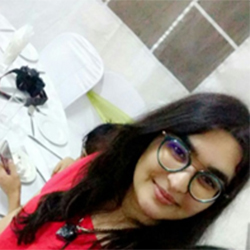
It was with great surprise and excitement that I discovered I was accepted for the History Access Masters' scholarship. Both my undergraduate and honours degree were completed at UCT, with my undergrad majors being English, History and Philosophy. In my third year of study, I took two comic book seminars in English and History respectively, which resulted in a short comic book about the Rhodes Must Fall movement. Through the encouragement of my tutor and other professors in the History Department, I made the comic my Honours dissertation and now I am thrilled to have the opportunity to improve it for my Masters degree.
Comic art is a liminal space that often gets brushed off as fiction for children, and is misunderstood as being simple. In fact, there are layers of understanding in reading a comic book and my hope is to be able to create a textured work that requires many readings to peel back the meaning therein. Although I draw more inspiration from the world of manga and anime than from traditional Western comics, I firmly believe that my book will be something that young and old alike can engage in. The topic of 'Rhodes Must Fall' makes this even more important, for my work engages with meaning-making, memory and how the youth involved in these student protests have come to understand their pasts and intend to (re)make and (re)imagine their futures, and the future of South Africa. I am incredibly grateful to have been given this opportunity by the History Access programme.
Outside of my project, I am interested in international politics, the sociocultural history of Japan and the history of non-white soccer and cricket in Northern Natal. I have a great deal of interest in the geek scene of Cape Town, and usually attend comic book/gaming conventions as an organising member of Cosplay Cape Town or Otaku Girls CT.
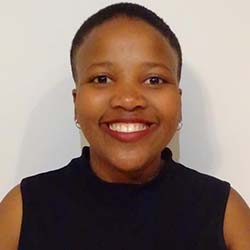
I completed my History Honours in 2018 and I will be pursuing a Masters in History (coursework) in 2019-2020.
My research interests lie in uncovering the dearth of black women’s writing and contribution to South Africa’s political history. The period I am interested in is the early twentieth century; in the 1920s South African women were beginning to gain a new visibility in the political arena, engaging activities that had political consequences and through their actions they were blurring the lines between public and private sphere.
My Honours thesis examined the political praxis of Nontsizi Mgqwetho. I closely looked at her poem “Imbongi ye Zibuko” (The poet of the ford) and argued that she was able to use poetry to mediate through a number of the layered contradictory realities of black life in the early twentieth century.
I also want to write more in isiXhosa, I believe that this will allow me to express myself in a compelling way and I have been able to speak to a wider audience. I want to develop as a scholar and to work on collaborative projects with other students and academics to reimagine epistemological possibilities for the future. I am also passionate about the media space, and I have been able to enhance my skills in radio working as a presenter, newsreader and producer.
I am excited to be a part of an intellectual project that is able to examine historical patterns, processes an interconnections in a creative way that is creative and allows for critical research.
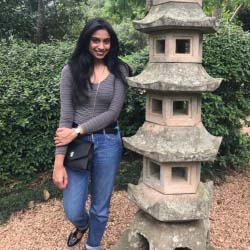
I obtained my undergraduate degree at Rhodes University I am currently pursuing my Masters in the Historical Studies department of the University of Cape Town. My research interest is the concept of home in isiXhosa; how it has developed and how it has changed over time. This focus lends itself to a study of the language itself as well as the social changes that affected the concept’s development over time. The conceptual history approach of analysis, I believe, is a valuable one. It allows for the in-depth analysis of everyday terms . Once this research is complete, I hope to continue with my studies further.
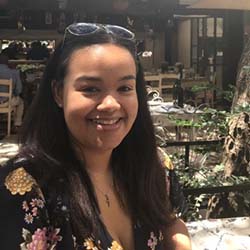
Chavonne Cupido obtained her undergraduate degree in History and English at the University of Stellenbosch and received her Masters degree in History at the University of the Witwatersrand. Throughout her postgraduate studies she was fortunate to work in three positions that she believes increased her passion for History and enriched her research interests.
Working as an archival intern at the South African History Archives afforded her the opportunity to learn about how important archival sources can be in narrating the histories of those who did not have a voice. Continuing with her interest in researching the histories of forgotten voices Chavonne then joined the Non-Racial Sports History Project as an interviewer. Her responsibilities included her interviewing women of colour who were involved in sports throughout the apartheid era. These interviews formed part of a larger mission for the Non-Racial Sports History Project to record the histories of forgotten voices which have been exhibited at the apartheid museum. Chavonne worked as a part-time researcher for the National Heritage Monument’s Long March to Freedom project. This project created a procession of 400 individuals who struggled against oppression in South Africa from the early 1700s to Freedom Day in April 1994. Although the project did not necessarily have the same research interests as her thesis she was able to gain a better understanding of the historical background relating to her project’s era. It was by researching these struggle heroes that she was able to provide an in-depth discussion on the history of criminality in South Africa, the socio-legal context of early Johannesburg, and the racial and gender dynamics of an unfair legal system.
These work experiences enabled her to understand how certain histories have been represented through the archives, historical monuments as well as oral history and also helped her shape her Masters research.
Chavonne’s Masters research examined the crimes of mariticide, attempted murder and assault with intent to murder in the Transvaal between 1917 and 1935. By exploring cases of mariticide before and after the union of South Africa and focusing on the female criminal subject and their agency within the courts and society more broadly, as their crimes were seen as considerably rare cases of violent acts, Chavonne wanted to explore how these women’s histories were narrated through court cases and the media. With further exploration she would like her PhD research to examine both mariticide and filicide, to strengthen the research field of South African female criminality. Her PhD would explore these female crimes within the Cape region after South Africa became a union and during the apartheid era and will examine the social constructs and issues that women of colour faced throughout this time period.
Although History is one of Chavonne’s main passions, she also enjoys reading, music, movies, exploring historical sites and would like to increase her travel experiences.
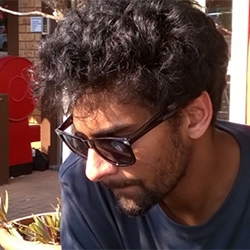
My university studies began at what is currently known as Rhodes University, where I completed a Bachelor of Arts in Politics and English Literature. I then went on to complete my Honours in Politics. Years later, after some disillusionment with the academy, I registered for a Post-Graduate Certificate in Education (PGCE) at the University of Cape Town, which led to an interest in teaching, particularly in History curriculum revision. I am a qualified high school History and English teacher.
From this, I was lucky enough to be absorbed into the Archive & Public Culture initiative (APC), where I had the opportunity to work between the UCT History Department and School of Education, reading for a Masters in Arts. My MA thesis focused on the public production of Mapungubwe as an historical event, and, more generally, the production of the problematic concept of the ‘precolonial’. The work spans between various disciplines, including archaeology, education and curriculum theory, the broad expanse of History as a discipline, and critical literary studies.
During this time, I have had the opportunity of contributing to various APC workshops, the Precolonial Catalytic Conference (held at Nelson Mandela University), and a focus group on ‘Public Discourses on the Past Before Colonial Times’ (coordinated by the Nelson Mandela Foundation and the Harvard University Centre for African Studies). I have written a chapter titled, ‘Allegorical Critiques and National Narratives – Mapungubwe in South African history education’, which was published in Whose History Counts (2018), edited by June Bam, Lungisile Ntsebeza and Allan Zinn. I am currently working on a prospective journal article which will deal with Mapungubwe as a future-oriented, politically-constructed instrument, and how its various interpretations might be more telling of the sense of futurity of the thinkers than the ‘truth’ of the past. The paper is to serve as the meeting point between my MA and the progress of my PhD.
My PhD work keeps with my interdisciplinary interests, as well as the peculiar continuities and transformations between colonial and postcolonial periods. The PhD is about a certain wariness we must have when reading history and thinking historically, lest we invite the worst of our pasts into our future. Methodologically, I take the ‘future’ as a defining concept in the production of histories, contending that if we take on futurity as an analytic tool, we will be able to make visible the shrouded politics of history production. The theory here works with the writings of thinkers like Karl Lowith, Kathleen Davis, and Reinhardt Koselleck. At the moment, my focus is on the (re)construction of traditional authority during the colonial eras of South Africa’s past, to consider the threads of the past which drag themselves into the future, and, in particular, how long past imaginations of the future come to us in the present.
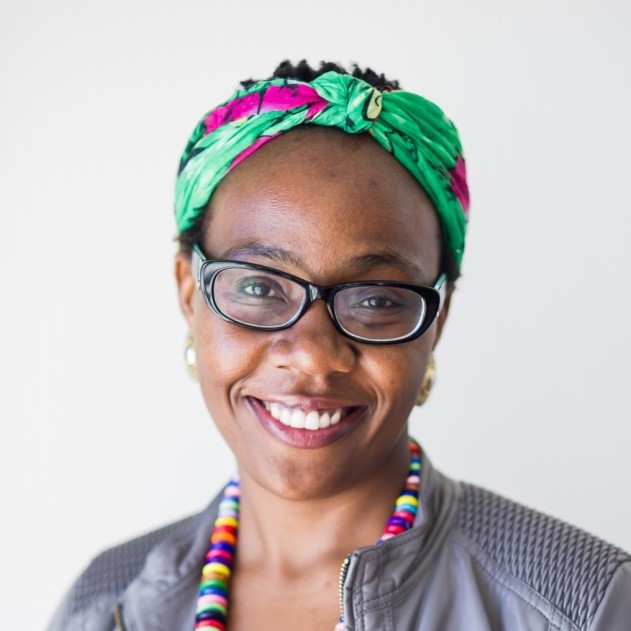
Nompilo Ndlovu is currently in the completion stages of her PhD which is an oral history study focused on Violence and Memory within in the Department of Historical Studies at the University of Cape Town – where she also adjunct lecturers HST3037 (History, Identity and Memory). Prior to this, she studied and worked within the disciplines of Gender and Development amongst communities within South Africa, as well as in the Horn of Africa through key institutions such as IGAD. Lastly, she is an alumnus of the African Leadership Centre/Kings College London where she completed the Peace and Security Fellowship for African Women, in the 2011/12 cohort.
Education
PhD topic Thesis: “The Gukurahundi ‘Genocide’: Memory and Justice in Independent Zimbabwe”.
Peace and Security Fellowship for African Women (Postgraduate Non-degree programme), Kings College London/African Leadership Centre, Nairobi, Kenya. (2011-2012).
Masters in Social Science (Social Development), University of Cape Town, South Africa (2007-2009). *(Dissertation Awarded Distinction, average mark of 75%).
Honours in Social Science (Social Development), University of Cape Town, South Africa (2006).
Bachelor of Social Science (Gender and Psychology), University of Cape Town, South Africa (2001-2004).